Hamish McLachlan: Horse trainer David Hayes reflects on magnificent career
From his days as a local footballer in South Australia to becoming one of the most powerful figures in world racing. Hamish McLachlan chats with David Hayes about his illustrious career.
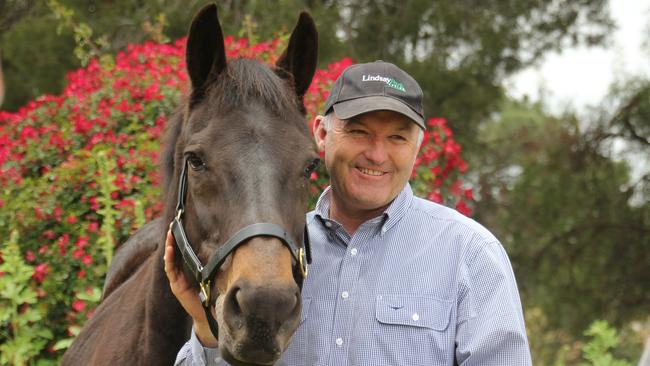
VIC News
Don't miss out on the headlines from VIC News. Followed categories will be added to My News.
David Hayes is the son of a Hall of Fame horse trainer CS Hayes, and a Hall of Fame trainer himself. His father established an Australian racing empire at Lindsay Park in South Australia, and David has enhanced it. He won the Melbourne Cup in 1994, and then went to Hong Kong and dominated the training scene. He returned, moved the family operation from South Australia to Euroa, and now his son Ben and nephew Tom Dabernig are about to take the reins as David heads back to Hong Kong. We talked early starts, football, fatherly advice, big bets and risking the honeymoon money.
HM: It’s 7am. What time were you up?
DH: 4.15am — every day I wake up at 4.15am and then we kick off with the first horses at about 5am.
HM : In bed at what time?
DH: As early as possible — 8.30pm to 9pm.
HM: Early movie sessions then. On a scale of 1 to 10, how good a footballer were you?
DH: (laughs) Ahhhh — I reckon 7½ — above average — I could always make the As, Hame!
HM: What was the conversation you had with your father — CS Hayes — about the future of your football career?
DH: He simplified things for me! I was playing at a pretty high level at the Adelaide Oval against Port Adelaide. Dad only got to see me play a couple of times in his life. The game he saw me play was in the reserves for Centrals against Port Adelaide. I was playing as a key forward, and we got flogged. At the end of the game he said, “What do we tell our owners if their horses are city class? I said, “You have a very good horse.” “What do we tell our owners if they’re Adelaide class?” I said, “We think your horse can progress to Melbourne class, it’s quite encouraging.” “What do we tell our owners if they’re only Adelaide country class?” I said, “Get rid of them!” Dad said, “Exactly — I suggest you retire.”
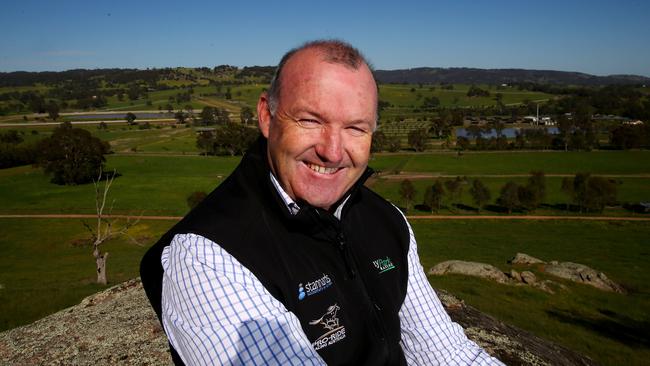
HM: Were you keen to play football, or did you know you were going into training?
DH: I was really enjoying my football, but it was at the time that Dad was getting sick. My brother and Dad had parted ways from a training sense, so Dad needed me to step up in the business. I had no choice really, but it was more about the work opportunity rather than my lack of football ability. He didn’t think I’d earn much as a professional footballer!
HM: You always wanted to train, though?
DH: Yes — I idolised my father, and I never had any other thoughts to do anything else. I just wanted to be like him.
HM: You became 2IC to your Dad at just 21. What were your greatest lessons from your father?
DH: With the horses, to be reliable, and be consistent with the horses, and always be open to make sudden changes. Believe in the routine and the process that you have in place, and if you make changes, only make them subtle. Tinker with your training routine, but don’t make drastic change. If you don’t stick to your basic routine, you never know where you are at.
HM: His famous line was: “The future belongs to those who plan for it”.
DH: He was very good at looking years ahead and making decisions now, for then. Not many do that — most of us are too concerned with today and tomorrow — but he was a long-term thinker. That was his best life advice.
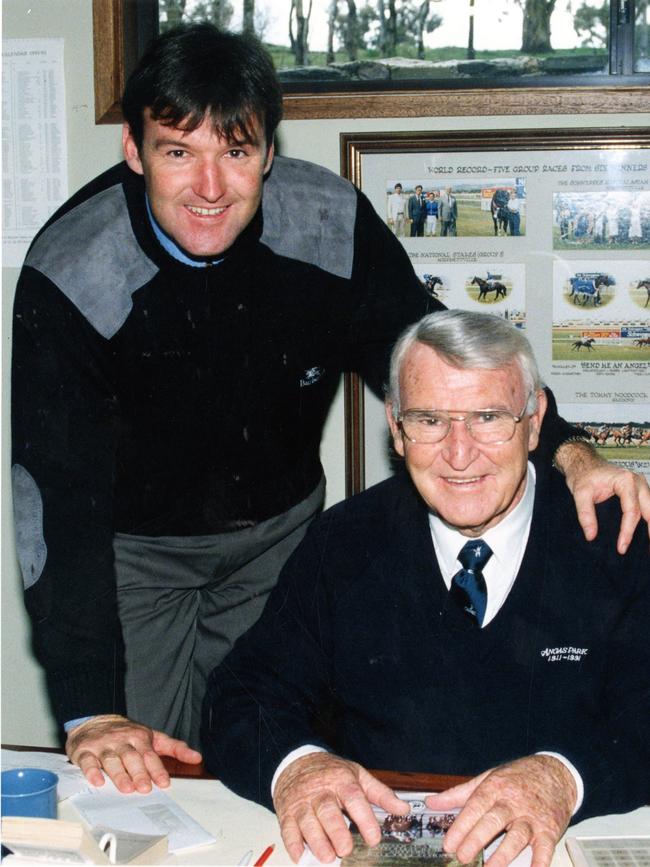

HM: The year you took over from your father, you had a season for the ages. Was that because it was so well set up by your dad because or a bit of luck and coincidence?
DH: You always need that bit of luck, where things fall into place and good horses don’t get injured, but Dad had a record season the year he finished, and he only finished through poor health. I was his right-hand man and doing a lot of the heavy lifting for him. I don’t think he would have retired if he thought he had a bad team to pass on to me. That team from that year continued on, and I think he got more pleasure out of watching those horses win for me, than he did when he was winning for himself! It was well planned as always by Dad, with a bit of luck!
HM: In your first season you won a Cox Plate with Better Loosen Up, a world record six group winners on Derby Day at Flemington, and the Japan Cup with Better Loosen Up.
DH: It was a solid start … I wish all the years since were similar!
HM: Six group winners on Derby Day?
DH: Derby Day is a day that you hope to get a winner as a trainer, let alone a young trainer in his first year. I was pretty confident I could win two races that day. I had Better Loosen Up running that day, and I had a good two-year-old. I said to Prue, “I think we’ll have a good day today” … but we just had one of those red-letter days.
HM: Are you more nervous watching a horse you’ve backed heavily or run in a Group race, or your son Will on debut for the Western Bulldogs?
DH: Will Hayes by the length of the straight!
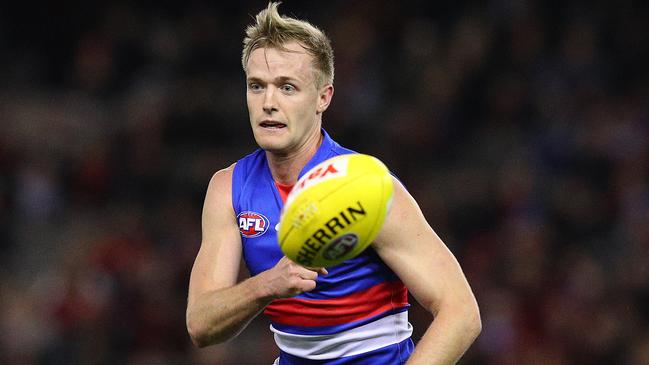
HM: How did you feel when you saw him run out for the first time?
DH: Very proud, and anxious that he’d have a good game. I didn’t want him to go out and look out of place. When he had nine possessions in the first quarter, it eased the pressure a little bit! When I go to watch him, I just watch him, instead of the whole game. I get very involved in his game, and I think that’s quite a natural thing for any parent. Whether he makes a clanger, or does something brilliant, I feel every possession.
HM: Is Will a chance to end up training?
DH: Will wants to train. I’m doing the opposite to Dad. I’m encouraging Will to live out his AFL dream for as long as possible, and then when he’s finished and he’s an accomplished rider, a good horseman, and he follows racing a lot with his spare time, he’ll be ready to train when he finishes football.
HM: You son Ben and nephew Tom will take over the Lindsay Park empire in Australia when you head off to Hong Kong to train shortly. Did you advise Ben to get into racing? Did you want him not to, or you didn’t mind?
DH: The one thing that we wanted all our children to do was to get a university degree. Ben went to university straight out of school while working part time in the stables. He went full time once he finished his degree, and he couldn’t wait for university to finish so he could start proper work. He was very much like me with my father. He’s only ever wanted to be a trainer, which is a nice thing. I don’t think he trains because he’s Colin’s grandson, or David’s son; he trains because he wants to.
HM: In your third season you win the Cup with Jeune. What changes when you become a Melbourne Cup-winning trainer?
DH: It’s a great relief that you have it on the CV — it’s all I ever wanted to win as a trainer. I’m glad I won it then — I think in the last 20 years it’s got a lot harder to win it than the old days! The international factor has changed everything. It’s the world’s race now, not just Australia’s race. The Cup travels all around the world, and every Irishman, every Frenchman, every German, every Englishman wants to win it. The moment they have a classy horse, a handicapper, it’s set for the race. It’s very hard, but very nice to be able to say you’ve won the Melbourne Cup. I’d love to be able to say I’ve won two! Lindsay Park, which I’ve been involved in, has won three. I’m working on a fourth with the boys.

HM: Why do the international horses seemingly have a stranglehold at the moment?
DH: I think because their emphasis with their breeding and their programs is on distance and not on speed and two-year-old racing. Their racing is underpinned by jumping, so a lot of horses that are bred to jump actually end up being good flat track horses. The way their horses are bred, and their program, are better for producing stayers. The way our program is and the way the horses are prepared and bred are towards sprinter milers here.
HM: You are about to head off to Hong Kong again as a trainer and take on the world. When you went the first time, your Dad wasn’t enamoured with the idea, was he?
DH: Not at all. I went to Hong Kong with Fraar; he was a Caulfield Cup winner and he ran second in the International Cup. I was very young, and I was just so taken by the Hong Kong racing scene. I came home and said to Dad, “I’d love to train in Hong Kong one day.” The hardest thing about that was convincing Dad that it was a good idea to go, because I’d just had a huge Spring. I’d won the Melbourne Cup, the Derby, and the feature race nearly every day in the Cup Carnival. Dad just couldn’t believe that I was even thinking about going to Hong Kong. I won the Hong Kong Jockey Club Plate on Melbourne Cup Day, and the General who ran Hong Kong racing asked me if I’d be interested going to Hong Kong. I came home after the Cup the next morning, and I had breakfast with Dad and said, “I’d really like to go to Hong Kong.” He just couldn’t believe it.
HM: What did he say?
DH: He was really wanting to talk me out of it. I was very keen to do it and mounted a very good case. I was able to talk my now-late brother back into the business. Peter did a great job taking my licence over. Dad and Peter used to have a difference of opinion on how to train, but they worked through it and they actually had a good time working together after I left for Hong Kong.
HM: It was a big decision or you — so was selling Lindsay Park in Angaston in SA, and moving the whole operation to Euroa. Lindsay in Angaston was iconic — it set your family up. Was that the biggest decision you’ve made in your life?
DH: It would rival heading off to Hong Kong the first time! It was bloody tough, emotionally, but I could just see that the gap between Victoria and South Australia was widening. It was too big an asset to have in a fading racing economy. I just thought, for the sake of my children who were educated in Melbourne, that I would rather invest in Victorian racing than South Australian.
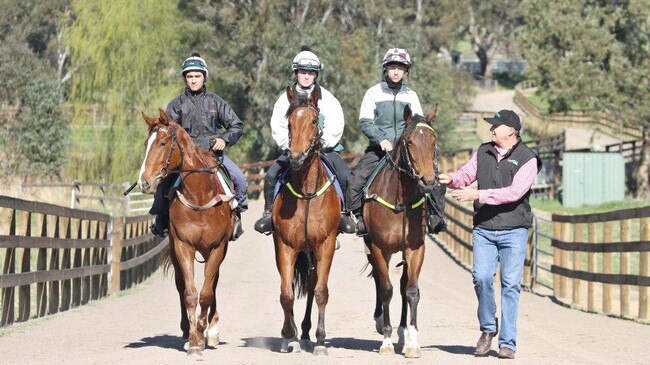
HM: And when you say invest, you pinned your ears back! Is it the biggest in the Southern Hemisphere, privately?
DH: Privately, it probably is. I think it’s bigger than Godolphin’s, but when I decided I was going to leave the famous Lindsay Park, I wasn’t going to leave that for something smaller. I took a lot of Dad’s great ideas 50 years ago, the ones that I thought were the best, and did some improvements. It’s still based on the original Lindsay Park, what I do.
HM: What’s the best of your Dad’s, and what’s the best addition to Lindsay Park 2.0?
DH: The grass tracks and the all-weather tracks are longer, and the pull-ups are less severe. They were a couple things that Dad would have changed if he could do it again. Dad put in the first equine pool in Australia, and it’s a much better pool 40 years down the road! The day paddocks where the horses go out during the day — the ones at Lindsay park were on the side of a hill, whereas these are in a specially designed area.
H M: Why Euroa?
DH: Because I thought it was the place where I could access water, and I liked the rolling hills of Euroa, which were like Lindsay Park. It was on the way to Sydney, six hours from Warwick Farm, whereas Lindsay Park original was 18 hours to Sydney. If ever we want to expand to Sydney, it’s within reach.
HM: You don’t have to talk numbers specifically, but what’s the best time you’ve ever had taking money from a bookmaker?
DH: With I Got Chills, when I had just got back from Hong Kong. She was a two-year-old. It was her first race start. That was an exciting plunge. She was very, very good. She was in work at the same time as Miss Finland, and Nadeem, who would win the Slipper and the Blue Diamond. She was faster than both of them, but no one knew! We did a jockey switch, and put the lesser known jockey on I Got Chills and the big names on the others. She jumped, ran and did the job, which was fantastic. It was an easy win. It doesn’t often happen like that.
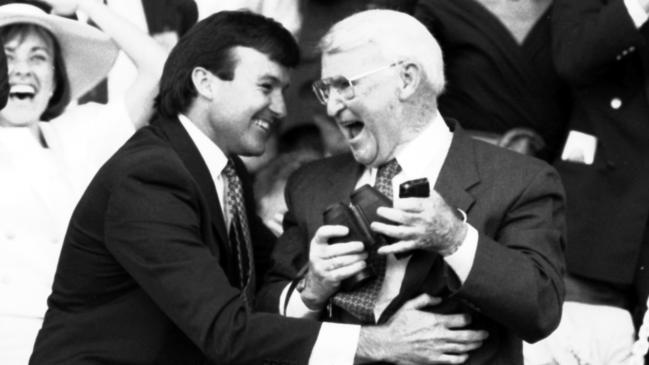
HM: You backed her from $18 into $5 and she won by 4½ lengths!
DH: Nadeem ended up winning the Blue Diamond, and he won the Maribyrnong Plate after it. He wasn’t good enough in the Maribyrnong trial that day, he came down the inside and she the outside. She, for speed, had a lot more than him but unfortunately broke down at the next start — she chipped a knee and she never the same. She won at Moonee Valley on Cox Plate day by eight lengths and had a faster time than the group one sprint. She was pretty special.
HM: I hope you had friends to help you get all the cash home.
DH: (laughs) There were plenty of people happy to help out!
HM: What’s the lure back to train in Hong Kong?
DH: One, the unfinished business, and two, to internationalise my business, Lindsay Park. It’s a booming racing economy, one of the few that is stronger than Australia, and it opens up fantastic opportunities. The presence of racing in China is growing every year, and it might open up employment opportunities for one of my boys down the track when they’re qualified.
HM: Is Hong Kong as competitive a racing environment as there is?
DH: I think it’s the most even. The biggest you can get as a trainer these days is 70 horses — it’s a lot of world-class trainers betting against each other! It’s very even, and very monitored. You don’t hear the whispers and rumours about when you get beaten by someone if you were beaten by a cheat, or someone’s giving an illegal substance before a race. That doesn’t happen in Hong Kong. I’m looking forward to going back into that environment.
HM: Does that happen too often here?
DH: It’s a lot better than it was. It’s a real positive that people are now getting caught, because if they weren’t, we’d all think it was a level playing field. Integrity departments are doing an amazing job catching the cheats, but it’s so spread out across the country, whereas Hong Kong is essentially all under the one roof. I wish it hadn’t happened, but it’s all for the better, and the more people they catch doing the wrong thing, the better it is for our industry. It’s a lot better than it was 10 years ago.
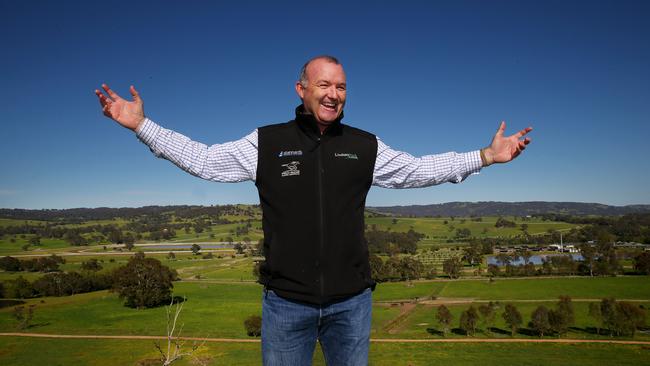
HM: You’re not allowed to have favourite children, but of all the horses you’ve trained, who have you got a soft spot for?
DH: I wish I had him this year — Better Loosen Up. He was a true champion, and why he doesn’t get rated as one of the all-time greats is because he only did it for the 12 months, before he broke down. If he’d done what he was doing for three or four seasons, he would have been one of the all-time greats. He was a super horse. The only Australian horse that’s ever won a Japan Cup.
HM: If you owned 100 per cent of a horse in the Cup, desperate to get it to win, which jockey do you put on?
DH: We are blessed with good jockeys. I can’t answer, because I think they have times when they’re in great form, and when they’re not. I’d go for the in-form jockey that’s ridden a lot of big winners.
HM: If you were CEO of Australian Racing, which doesn’t exist, what would you change?
DH: I would try and get a national tote, and make it genuinely national, like the AFL. No fractures between states. And I know it’s not that simple, because my wife was on the board of RVL (Racing Victoria), and I understand in the short term it can’t happen, but I’m sure in the long term it could if they were really wanting to do it.
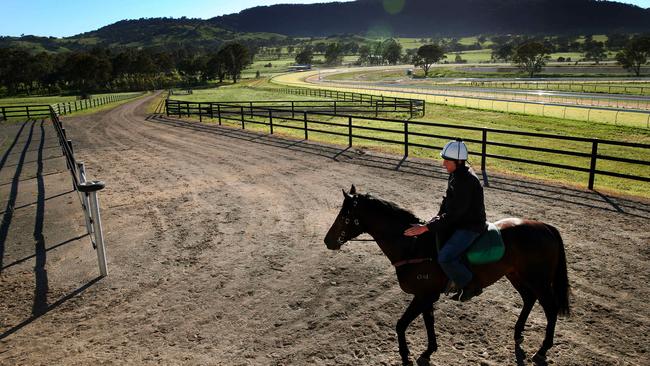
HM: If you were going to win one big race here or around the world, which is it that you would want to win?
DH: The Melbourne Cup.
HM: Still?
DH: Still. I think about other races every year, but when I’m sitting in the stand on Melbourne Cup day I always think, jeez, it would be good to win!
HM: Did your old man put everything on one roll of the dice with a horse called Surefoot?
DH: The honeymoon money! He didn’t have much money at all, Dad started with nothing, and when he was getting married to Mum, they saved up a bit of money to go on a honeymoon. He put it all on Surefoot at 66-1 — each way. He missed the start on the horse; he was riding him in an amateur race! He was sweating, counting down to third … passing horses … and praying! He ran third a half head. He saved the honeymoon money, made some, and got rolling!
HM: And called his first stable Surefoot Lodge?
DH: Surefoot was his first winner, and the first horse he trained.
HM: Do you reckon if he runs fourth, life changes completely?
DH: (laughs) They certainly wouldn’t have had a good honeymoon! He gambled his leisure money — not his life. Never gamble your life!
HM: You’re the youngest trainer inducted into the Australian Racing Hall of Fame. It’s been a huge career so far. Thanks for your time, Hayesy.
DH: Dad was the first, with Bart Cummings and TJ Smith. Dad and I were the first father and son to get in. That was a big thrill. It’s a nice club to be in. Good to talk, Hame.
The Victorian Spring Racing Carnival. Where great moments are made.
